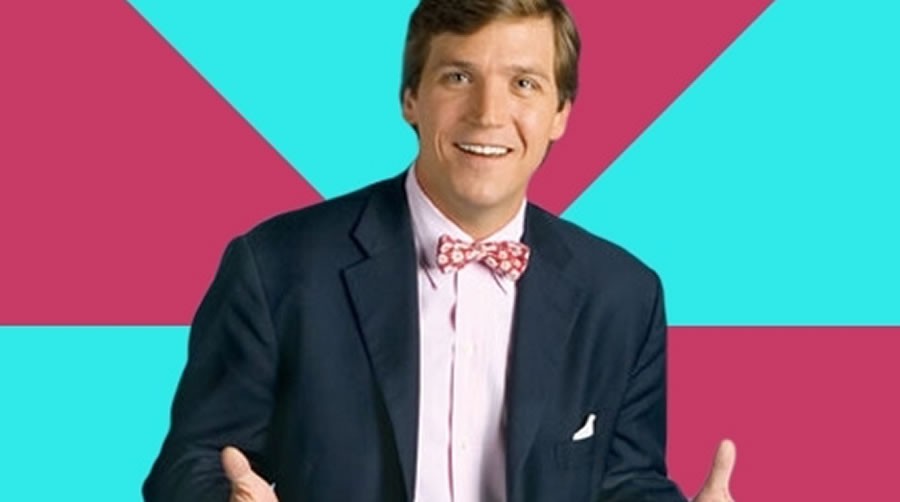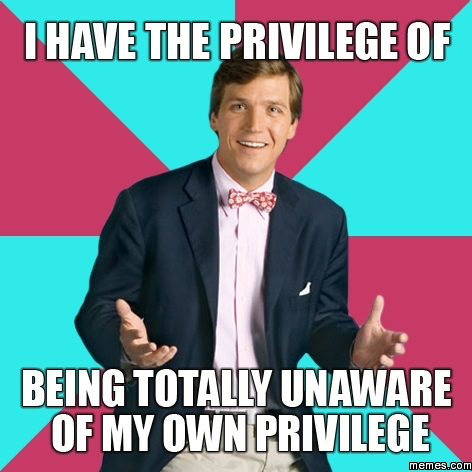
How To Be White And Happy In South Africa
It’s tough being a rich white male. Alright, now that I’ve got your attention … I’ve witnessed a tectonic shift in this country’s narrative over the last 18 to 24 months. Today, as a white South African, I’m feeling vulnerable. I feel like I can’t speak freely. I feel like I’m damned if I do, […]

It’s tough being a rich white male.
Alright, now that I’ve got your attention …
I’ve witnessed a tectonic shift in this country’s narrative over the last 18 to 24 months. Today, as a white South African, I’m feeling vulnerable. I feel like I can’t speak freely. I feel like I’m damned if I do, and I’m damned if I don’t. I feel like my character is second to my skin colour, and that simply being white might make me the target of some random act of violence. I don’t feel at all welcome here.
My how the tables have turned.
For the first time in my life I’m well out of my comfort zone. I have felt genuinely guilty for just being white. And yet, despite this, I’m still sitting pretty. The truth is it’s not even remotely tough being me. I live a dream life and I have all the opportunities I could ever ask for.
Being pushed out of my comfort zone has me asking questions about what to do next. White questions like stay or go? Jozi or Cape Town? Do I have an Irish great grandfather? You know, the usual.
Then, from the midst of all the doom and gloom, comes a sliver of hope and a moment of clarity. I am white. I don’t have to be ashamed of being white. I can enjoy and even be proud of being white. I have as much value to add here as anybody else, even if my pale hue points to European descent.
But if I’m going to be proudly white and proudly South African and contribute something positive to whatever direction this crazy beautiful corner of the our continent is headed in, then I think there are several practical ways to achieve that. Bear with me on this.
Embrace your privilege
Much has been said and written about what is now commonly been called white privilege. I’m not going to attempt to explain it any further, partly because others have done so and partly because I don’t feel qualified to speak authoritatively on such a complex topic. I will assume that if you are white and reading this that you have sought at least to understand the notion of privilege and applied some critical thought to the reality of it in your life.
Now, stop shying away from it. Stop being defensive about it. Stop trying to explain yourself out of it. Embrace it.
Yes, you heard me right – we were downright lucky to be born white in South Africa at the time we were. In fact you’d be downright lucky to be born white anywhere in the world at any time, history tells us. In the lottery of the natural world we got a better than average ticket. How we use that ticket is a testimony to our character. As I once heard Doug Rushkoff say, there are broadly two ways to live your life (referring obviously to wealth and not necessarily to skin colour but I think the principle remains): either make enough money to insulate yourself against the problems of the world or use that money to fix them.
Use your epidermal trust fund wisely.
As the world witnesses a distinct, vocal and passionate black consciousness rise out of the democratisation of publishing and media, and as the control of the global narrative slips out of our collective white fingers, we have been presented with an extraordinary opportunity to understand our role in the change and to choose either to run away from it, or to embrace it. Do the latter.
Forget everything you (think you) know about racism
I thought racism was making jokes about black people and calling minibus taxi drivers names when they cut you off in traffic. The degree of sophistication of my comprehension extended at most to believing that racism was a blanket assumption, positive or negative, about a group of people based purely on the colour of their skin. You can see this reflected in a blog post I wrote some years back. This view of racism is more accurately described as prejudice and or discrimination.
Racism, as I now understand it (and I am open to being proven wrong or educated further), is the systemic abuse of white privilege in society. Because this is so much more complex and subtle than just not calling black people derogatory names, we have failed dismally in actively addressing the often insidious and utterly destructive force of racism in our every day lives. 99% of us, it seems, have not had a clue it existed. We thought we were eradicating racism by finally coming to terms with calling “the garden boy” the gardener. How naïve and blind we have been. This stark realisation has been a shock to the white psyche. Any shock of that nature will initiate a response. How you respond is a testimony to your character.
I have also realised that we have collectively (black, white and every other race group on the spectrum) done the necessary process of dismantling and addressing racism a catastrophic disservice by creating a naming false dichotomy. We have believed that you can be “racist” and “not racist” like you can be pregnant and not pregnant and that there are no degrees in between. We have vilified “being a racist” to the point that people are now too terrified to be deliberately introspective about their inherited and learned biases and prejudices.
I’m not at all defending the acts of the outrageously racist and deliberately hateful– these incidences can and should be punished and such people have no constructive role to play in society – but the way I understand racism now helps me to acknowledge and address, albeit painfully, the remnants of the cancerous impact of racism in my own heart and mind. I want to expose it, talk about it, be challenged on it, and deal with it.
To flounder desperately as a white person denying the presence of racism in your world is to attempt to rationalise that, contrary to all evidence, you are a fish out of water. Fish survive in water. If you are a fish, you survive in water. Racism, I’ve suggested, is the systemic abuse of white privilege. If you are white, you cannot escape racism. One might even argue that if you are white, you cannot, not be racist. If there is philosophical merit to that stance, accept it, and get on with it. “Oh well, I have cancer, let’s get on to the chemotherapy then.”
Right now we’re arguing racism and racist behaviour with each other like we have the same definition for it. It’s not surprise we aren’t making any progress.
Understand that you don’t get a cookie
Last year I had an eye-opening debate with a feminist colleague of mine during which she shared a thought that rocked my foundations:
You don’t get a cookie for being a nice guy.
I want you to imagine you have two builders working on an extension of a property for you (did you imagine them black? – I’m just kidding – relax).
They are building two almost identical rooms on either side of a passage. You have given them five days to complete the job. After three days Builder 1, let’s call him Bob, has done three days’ worth of work and is bang on schedule. Marvelous.
Builder 2, we’ll call him Tom, has only completed one day’s work in three days. You’re furious. He is wasting your money, and he has betrayed your trust. Tom has quite enjoyed being a little slow and didn’t even notice he was that behind schedule. You read Tom the riot act, he craps himself and at the end of day four Bob has done four days of work and Tom has caught up to three days of work.
Tom is very chuffed with himself because he did two days’ worth of work in one day! What a miraculous achievement, he cries, and especially for someone who was so slow to start off with! But you’re still angry at Tom because even though he did two days’ worth of work (which is pretty remarkable even by your own admission), he is still behind Bob and still wasting your money and worse yet, he’s happy with himself!
Would you reward Tom for his progress? I wouldn’t.
Spoiler alert: Bob is black people in South Africa. Tom is white South Africans, who realised with a bit of a start in the mid 80s and early 90s that we had been unimaginably and inexcusably disgusting human beings.
Many white South Africans have consciously addressed their race-related prejudice and bias by changing their vocabulary, actively engaging in nation-building initiatives, having real conversations, building meaningful relationships, etc. But advancing to the point where we are now more decent human beings does not justify a reward. If we have somehow gotten there we’ve just started our journey. We’re on square one. We don’t get cookies for getting to square one.
Stop expecting Jacob Zuma to be your president
Happiness = expectation – reality.
You’re pissed off with Jacob Zuma because you think he is a useless president. Nothing about Jacob Zuma’s tenure as South Africa’s president gives any real evidence to the contrary. Here’s the problem though – I don’t think Jacob Zuma has any intention of being the loved and appreciated president of a democracy.
I think, and please bear in mind this is my completely unqualified opinion on the subject, that Jacob Zuma is a chief, actively building his chieftainship. And to be fair to the man, he is very good at that. If you stop thinking of Zuma as the leader of a democracy and attempt to understand his decision-making process as the autocratic leader of a tribal community, you’ll save yourself a lot of frustration and incredulity. His is the chief, we are his villagers.
Again, I am in no way excusing his actions or decisions as the president of our democracy, I am simply attempting to change my expectation in the interest of progress.
Zuma or no, politicians won’t save us. We have the utterly dysfunctional ANC on one side, the ankle-biting, opportunistic smurfs on the opposite side and Julius the chili in the middle of that stale sandwich.
As election time looms I’m seriously considering voting for a guy in a red beret who seems intent on beating me out of my cosy Bryanston home with a big stick. Not even Woolies moving sweets out of the checkout aisle had me this confused and conflicted.
Recalibrate your view on the Nelson Mandela chapter
I saw a tweet recently that read: “‘But Mandela …’ – white people proverb.” I sadly can’t remember who the author was.
The day Nelson Mandela was released from prison is carved out vividly in my memory. We were at my grandfather’s house in Edenvale. All the grandkids were horsing around outside. All the grown ups were inside, in a circle, watching the TV silently. Not much was being said. I don’t know if my family knew what to think.
The rest is history. Nelson Mandela, in an unprecedented display of almost messianic benevolence and forgiveness, told us that everything would be ok. We (white people) had repeatedly and remorselessly done unthinkable things to our countrypeople and here we had the single person we had been told was the greatest threat to white domination and prosperity telling us everything would be ok.
He said remarkable things. He made remarkable decisions. He broke down formidable barriers. He wore that no 6 jersey. He embraced the very people who had trampled him into the dirt his entire life without hesitation.
And we lapped it up. I mean, who wouldn’t?
What I’m about to suggest has every chance of being misconstrued terribly but I hope you’ll understand my hypothesis. Madiba’s character and his act of forgiveness was such an utterly extraordinary occurrence of rare superhumanity – perhaps never before seen and never to be repeated – that it gave us (white people) the delusion that decades and even centuries of mistreatment of our compatriots could be magicked out of thin air overnight.
Then came the TRC and again an unparalleled display of forgiveness and we believed the work had been done. All that was left was to get your BEE level up to scratch and you were rainbow material.
Of course genuine progress was made and lives were changed. I sincerely believe tens of thousands of South Africans of all races made a concerted effort to “move forward”. But this is the problem with racism. It’s a complex system. You can change all the plasters you like but if the sores are caused by cancer you have to intervene aggressively.
What we needed was an ongoing commitment to doing the work around understanding and actively reversing the long-lasting and ingrained implications of decades of apartheid. We needed to have tough conversations. We needed introspection. We needed to address class distinction, language barriers, and poverty.
Instead we hoped we’d win another World Cup because that seemed to do the trick the first time.
Ok, I’m generalising and being slightly facetious, but you get the point. The work we didn’t even necessarily realise we had to do since 1994 is now the emergency intervention we have to take 21 years later. Our 21 year old democracy, brought up by two very different and almost irreconcilably estranged parents, is now going off the rails.
Actively change your perspective
As white South Africans we have the luxury of being able to choose whether we’ll insulate ourselves against the problems in our country or use our means and influence to address them. If we choose the latter we need to acknowledge that eradicating racism is going to take generations to achieve – we’ll never get to see the fruits of those efforts, but our grandchildren or great grandchildren might. That said, we simply can’t ignore the role we have to play in that process, or let the depth and scale of systemic racism dissuade us.
In the face of such a monumental challenge these suggestions will seem inane, and yet so few of us even bother to attempt the basics. Start by spending time in places you normally avoid. Try having a conversation with people you normally ignore. Learn Zulu and Xhosa greetings. Use public transport. Invite black colleagues to share their stories and experiences with you, even in open forum. Listen. Volunteer at your local police station or an inner city school. Go have dinner at your domestic helper or gardener’s flat, home or shack. Read as much as you can. Use social media to find and follow black people with a distinctly different view to yours rather than using it create a white echo chamber around yourself. If you feel threatened by what they’re saying, you’re in the right place. The road to an authentically New South Africa is paved in increments of paradigm shifts.
But more than anything else, let’s speak up when we see blatant or even subtle racism at in social contexts and at work. Let’s make laughing at the jibes and jokes socially unacceptable. Let’s risk offending our peers and call people out. Let’s have the raw debates and conversations. Let’s have them publicly. It quite literally is the very least we can do.
A final parting thought. A valued, trusted and incredibly patient friend and colleague of mine has helped me begin to grasp that the rising tide of black consciousness we are witnessing is not anti-white, or even necessarily anti-racist. It is a public war against attempts to simplify or deny the incredibly complicated realities of privilege, supremacy, oppression and systemic racism. Without a sincere attempt to understand, engage and combat the depth and breadth of these issues, white South Africans are at risk of having no constructive role to play and being made redundant. I think that would be a terrible shame.
As always, your comments are welcome.
This article first appeared on Mike Stopforth’s blog and is republished with kind permission. The original article can be seen here.
